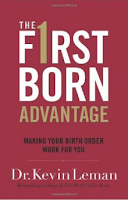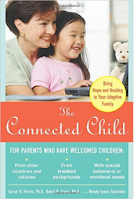Well, my eyes have apparently been busier than my fingers this summer.
I just looked at my growing stack of books I’ve read, realizing I have not blogged any Book Club posts in months.
I’ve spent an intentional summer trying to rest and live in a season of slow. Some weeks I went without reading anything, other weeks I couldn’t put them down, eagerly looking forward to the weekends or evenings.
Here are a few of what I've read this summer...
The Firstborn Advantage – Dr Kevin Leman
Making Your Birth Order Work For You
This was a book I bought and had on my shelf for a few years now. I’d gotten part way through, and for whatever reason, never finished it. I was through all my other books, and plucked this out because I really didn’t have much else to pick from. The back of the book say “You’re driven. You have big plans and dreams. You demand a lot out of yourself, you’re the benchmark setter, you’ve always done what’s expected of you…” Ok, so I may identify a little with that, doesn’t everyone? Well apparently not. :-) This book is an interesting look at the different personalities and behaviors associated with our birth order, which I personally found extremely interesting. I am a complete, spot on First Born: organized, natural leader, reliable, list maker, perfectionist, creature of habit, over achiever, pursuer of excellence… yeah, I know… It gave science and insight behind many of the reasons I am apparently the way I am, and why I do the things I do. Why I struggle with what I struggle with within me. It explained how my upbringing also strongly affects my habits and tendencies, and how how I am parenting is also affecting the way my children will be affected as they grow up. I found a lot of this area very humbling and scary.
The Firstborn Advantage – Dr Kevin Leman
Making Your Birth Order Work For You
This was a book I bought and had on my shelf for a few years now. I’d gotten part way through, and for whatever reason, never finished it. I was through all my other books, and plucked this out because I really didn’t have much else to pick from. The back of the book say “You’re driven. You have big plans and dreams. You demand a lot out of yourself, you’re the benchmark setter, you’ve always done what’s expected of you…” Ok, so I may identify a little with that, doesn’t everyone? Well apparently not. :-) This book is an interesting look at the different personalities and behaviors associated with our birth order, which I personally found extremely interesting. I am a complete, spot on First Born: organized, natural leader, reliable, list maker, perfectionist, creature of habit, over achiever, pursuer of excellence… yeah, I know… It gave science and insight behind many of the reasons I am apparently the way I am, and why I do the things I do. Why I struggle with what I struggle with within me. It explained how my upbringing also strongly affects my habits and tendencies, and how how I am parenting is also affecting the way my children will be affected as they grow up. I found a lot of this area very humbling and scary.
I found it interesting though, that as I read and thought about the birth order and personalities of my husband and children, that none of them really fit their expected mold like I did. I wondered about that, and while much of that is still puzzling to me, a lot is explained when you look at the different variables and parental factors within each person. It really is all quite intricately woven and intriguing, but I can’t say that by the time I closed the book I really knew how to live my life differently so that my “birth order would work better for me” like the cover of the book claimed. But, it did leave me with an understanding and insight as to personality quirks and oddities and why certain relationship dynamics are the way they are. And it did give helpful insights and clarity for things to watch for within our relationships and leadership rolls.
Book Quote: “Balance is a crucial issue for a firstborn. Firstborns need permission to be able to relax. We struggle commonly with time management, stress management, and prioritizing because we tend to take on a lot… in fact, too much."
The Connect Child – Karyn Pruvis and David Cross
Bring Hope and Healing to Your Adoptive Family
This was another book out of my library that I have read before, many times in fact. It’s probably a book I should just continually read over and over and over. Every time I read it I underline a few more things, and take away and connect with a few more nuggets of understanding.
This book contains amazing insights, help, and support for parents and care givers who deal with children who have special behavioral or emotional needs. This is a book I wish every care giver, educator and anyone in a leadership roll with children and youth would be required to read and study. It's such good, good stuff.
The first time I read this book our youngest child, who is adopted, was very little. There were a few habits and traits we were already starting to stumble over with him, but it would be coming back and reading it again the second, third, fourth times as the years have continued, that this book has really offered a sense of hope and light into difficult daily parenting for me. Hand-in-hand with this book, my husband and I also took a multi-week seminar covering this same material as well a few years ago. I would have to honestly say that this has been one of the most transformational tools for the small successes we have made in our home, and a great reminder and help of basic points and logic as we continue through issues we struggle with. It offers understandable science and basic reasoning behind behaviors with useful strategies and phrases to help bring an environment of healing, health, and connection within the difficult relationships. It’s a change in direction and thought from the world’s standard way of dealing with learning and behavioral issues, explaining why it’s important to first identify the cause of the behavior, before you will ever be able to deal with the behavior itself.
Book Quote: “At-risk children can easily feel alienated and cornered, alone and against the world. Feeling that way, it is almost guaranteed that they will come out fighting, manipulating, or fleeing. Then, the only adult attention they receive is endless scolding and punishment. Soon this dysfunctional dynamic becomes a habit, and the children learn to seek familiar and available attention by acting out, which is a scary and miserable way to live. You have a unique opportunity to change that scenario by building a bridge to the world for your at-risk children… Instead of seeing yourself as the victim of a pint-sized terrorist, begin seeing your role as a compassionate, nurturing guide and ally for your little one. Respect and honor the child’s needs, even when you don’t entirely understand what drives them.”


No comments:
Post a Comment